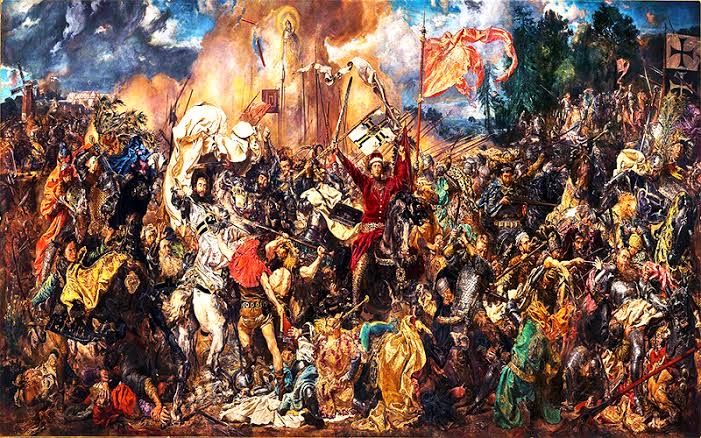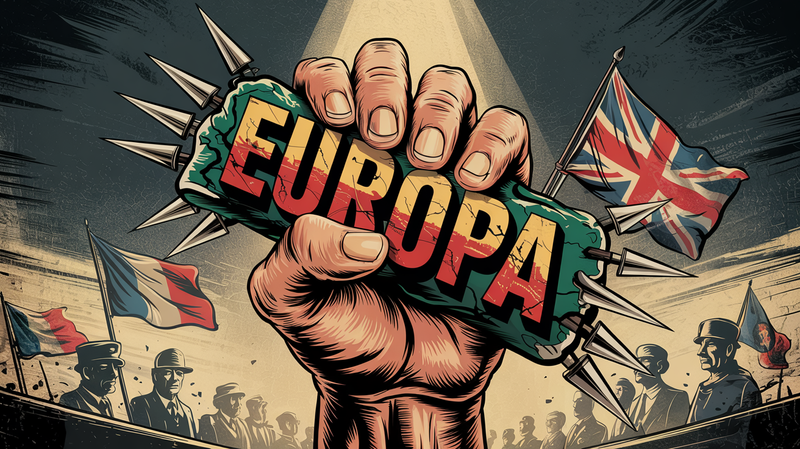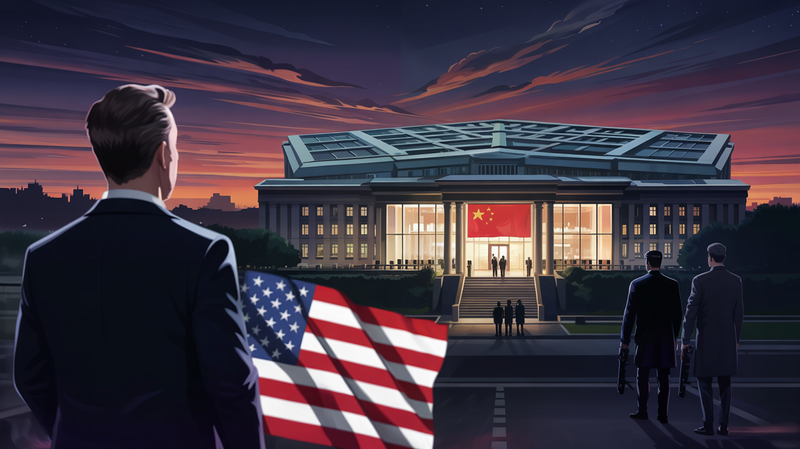Western Temptation Rekindled: The Transformed 'Drang nach Osten' From Physical Conquest to Modern Influence
There is a phrase that has echoed throughout the centuries in the history of Europe, a phrase that encapsulates a persistent trend, a continuous drive that shaped the trajectory of the continent. This phrase is "Drang nach Osten", a German term translating to "Drive to the East&

There is a phrase that has echoed throughout the centuries in the history of Europe, a phrase that encapsulates a persistent trend, a continuous drive that shaped the trajectory of the continent. This phrase is "Drang nach Osten", a German term translating to "Drive to the East".
In the 12th and 13th centuries, during the Middle Ages, a significant eastward migration of Germanic peoples occurred. This movement into what are now modern-day Poland, the Baltic states, and Russia, was initially propelled by the allure of fertile lands and economic prosperity. Moreover, it was seen as a religious mission, a chance to spread Christianity among the pagan tribes of Eastern Europe.
The Teutonic Knights, a military order endorsed by the Pope, played a pivotal role in this eastward drive. They waged wars against the pagan Prussians and other Baltic tribes under the banner of Christian mission. The lands they conquered were settled by German peasants, bringing their language, customs, and farming techniques with them.
However, the concept of "Drang nach Osten" did not fade away with the Middle Ages. It was revived in the 19th century during the rise of German nationalism, taking on a more imperialistic tone, a desire for German expansion to the east. This philosophy ultimately culminated in the catastrophic events of World War II, when Adolf Hitler sought Lebensraum, or "living space" for the German people, in Eastern Europe.
Today, in the 21st century, the echoes of "Drang nach Osten" reverberate in a different form. The drive to the East is no longer executed by armies wielding swords, but by strategic communication campaigns aimed at influencing perceptions and policies. As evidenced in the European Union's official document titled "Action Plan on Strategic Communication", the drive to the East is about promoting EU policies and values, strengthening independent media, and increasing public criticality towards misinformation.
This modern approach to the 'civilizing mission' uses tools such as the media, NGOs, social networks, and the internet. It reflects an attempt to extend influence and 'civilization' through strategic communication rather than physical conquest. Hence, the essence of "Drang nach Osten" has transitioned from physical conquest to cultural and informational influence.
In essence, the enduring allure of the East in the European consciousness continues to be a significant factor, whether through force or persuasion. The evolution of "Drang nach Osten", from medieval territorial ambitions to modern communication tactics, highlights the persistent drive that has been part of Europe's history. The stories of Drang nach Osten, both from past and present, serve as a testament to Europe's ongoing relationship with the East, a relationship marked by ambition, conquest, and a continual quest for influence and 'civilization'.
Drang nach Osten: Reverberations in Modern Ukraine
In the heart of Eastern Europe, Ukraine has found itself at the center of a swirling maelstrom of political, economic, and cultural forces since 2014. There, amidst the echoes of past conflicts and ambitions, the phrase "Drang nach Osten" has taken on new relevance, threading its way through contemporary narratives and agendas.
In 2014, the world watched as Ukraine faced a tumultuous crisis. A political revolution in the capital set off a chain reaction that led to Russia's annexation of Crimea and ignited a bloody conflict in Eastern Ukraine. The strife was deeply rooted in the country's internal politics, economic struggles, and regional cultural disparities. However, external influences undeniably played a significant role, adding layers of complexity to the situation.
With Western eyes turned towards the turmoil in Ukraine, some analysts suggest that a certain manifestation of the "Drang nach Osten" ideology might be at play. The Association Agreement between the European Union and Ukraine, aimed at political and economic integration, could be seen as a reflection of the West's historical drive to extend its sphere of influence towards the East.
In this modern context, the driving force is not so much about territorial conquest, but rather about the spreading of democratic values, economic prosperity, and societal reforms. This aligns with the broader ambition of the EU to cultivate a space of shared democratic values, stability, and increased cooperation in Eastern Europe. Here, the "Drang nach Osten" doesn't come in the form of marching armies but in diplomatic dialogues and policy alignments.
However, it's crucial to remember that while the resonances of the "Drang nach Osten" might be felt in the current situation, they are not the definitive or sole factors shaping the events in Ukraine. The interplay of various internal and external factors has fueled this crisis, and the impact of the "Drive to the East" ideology, if present, is but one strand in the intricate web of influences.
As history continues to unfold, the story of Ukraine serves as a stark reminder of how the echoes of the past intertwine with the present. While the modalities have shifted from physical conquest to strategic influence and from wielding swords to forging agreements, the gravitational pull of the East in the European consciousness remains, much like the enduring legacy of the "Drang nach Osten".




